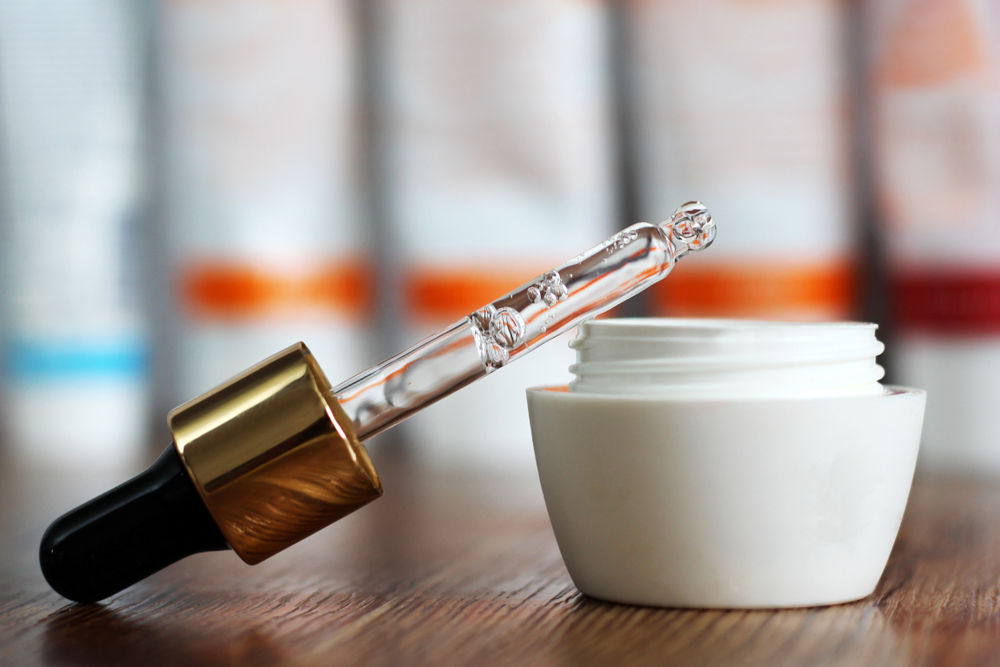Hyaluronic acid is a substance that is naturally produced by our body and is abundant in our connective tissues and eye area (1). As we age, the amount of hyaluronic acid decreases. Its main function is to retain water to keep the body tissues stay hydrated.
Many people use Hyaluronic Acid as a supplement, but it is also used in serums, eye drops, injection and topical serums.
Benefits of Hyaluronic Acid:
1. Act as Humectant
A humectant is a substance used to retain moisture. According to research, hyaluronic acid can attract more water as compared to other ingredients as it can draw around 6 liters of water to the skin by just using one drop.
Our skin requires water to stay hydrated and healthy. By using hyaluronic acid ingredients, the skin will stay moisturized and smooth throughout the day.
2. Reduce Wrinkles
As we age, our skin ages and loses its elasticity and firmness. Wrinkles will appear if the skin is too dry, causing it to crack especially around your eyes and laugh lines.
Hyaluronic acid can reduce the appearance of wrinkles, but it does eliminate it. By retaining the moisture to your skin, it may help to prevent wrinkles around that area. Hydration can also help to keep the line and wrinkles less noticeable.
3. Ease Dry Eye and Irritation
According to a study, about 1 out of 7 adults suffers from dry eyes due to a reduction in tear production (2).
Hyaluronic acid is famous for its ability to retain moisture and it is being used in teardrop solutions to reduce the dry eyes symptoms as well as to improve eye health (3).
In addition, hyaluronic acid eye drops is commonly used in surgeries to reduce any inflammation and to increase the recovery of wound healing (4).
4. Antioxidant Properties
Hyaluronic acid has antioxidant properties, and this may help to combat the effects of free radicals. Free radicals and UV rays are enemies to the skin as it can cause skin dryness and wrinkles.
As hyaluronic acid can protect the damage to the skin, it may also help to delay the effects of aging.
Hydrated skin may help a person to look “young” for a longer period, but once the skin is damaged, it can cause someone to look older than their age.
References:
1. Papakonstantinou, E., Roth, M., & Karakiulakis, G. (2012). Hyaluronic acid: A key molecule in skin aging. Dermato-Endocrinology. https://doi.org/10.4161/derm.21923
2. Javadi, M. A., & Feizi, S. (2011). Dry eye syndrome. Journal of Ophthalmic and Vision Research, Vol. 6, pp. 192–198. https://doi.org/10.1358/dot.1998.34.5.485243
3. Iester, M., Orsoni, G. J., Gamba, G., Taffara, M., Mangiafico, P., Giuffrida, S., & Rolando, M. (2000). Improvement of the ocular surface using hypotonic 0.4% hyaluronic acid drops in keratoconjunctivitis sicca. Eye, 14(6), 892–898. https://doi.org/10.1038/eye.2000.244
4. Gomes, J. A. P., Amankwah, R., Powell-Richards, A., & Dua, H. S. (2004). Sodium hyaluronate (hyaluronic acid) promotes migration of human corneal epithelial cells in vitro. British Journal of Ophthalmology, 88(6), 821–825. https://doi.org/10.1136/bjo.2003.027573
wellness
Have You Ever Thought About Quitting Smoking?
Thursday, 31 October 2019
Smoking can cause major harm to your organs, especially your lungs and heart.

















![[BUNDLE OF 2] Singlion Vitamin C + Lutein + Zinc Effervescent](https://www.vitasg.sg/images/thumbs/0002225_bundle-of-2-singlion-vitamin-c-lutein-zinc-effervescent_415.jpeg)

